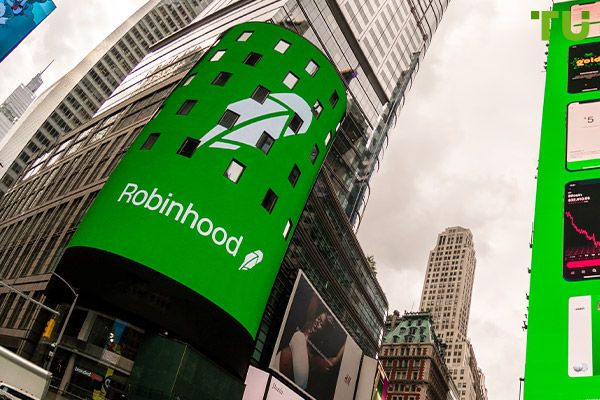Robinhood Defeats Investor Appeal Over Restrictions During the Short Squeeze of 2021
 Robinhood Defeats Investor Appeal Over Restrictions During the Short Squeeze of 2021
Robinhood Defeats Investor Appeal Over Restrictions During the Short Squeeze of 2021
The 11th U.S. Court of Appeals in Atlanta has dismissed an appeal brought forth by investors against Robinhood.
The legal action tackles the trading restrictions imposed by the platform during the intense meme stock short squeeze phenomenon that took place in January 2021.
A group of investors initiated a lawsuit against Robinhood in September 2021, alleging that the trading app unjustly curtailed customers' ability to purchase certain stocks that were at the center of the frenzy, while still allowing them to sell these shares.
Notably, the stocks that attracted significant attention during this period included GameStop (GME), AMC Entertainment (AMC), and BlackBerry (BB), among others.
Robinhood's move to limit trading allegedly led to a decline in stock prices due to constrained demand, thereby allegedly forcing affected investors to offload their shares at lower valuations.
However, a unanimous 3-0 decision from the court sided with Robinhood's actions, asserting that the plaintiffs' claims lacked legal standing.
The court supported Robinhood's position by emphasizing that the company's customer agreement explicitly grants it the authority to restrict trading activities at its own discretion, without any prior notification.
The ruling stated, “The plaintiffs fail to state a claim — their contract with Robinhood gives the company the specific right to restrict its customers’ ability to trade securities and to refuse to accept any of their transactions. Because Robinhood had the right to do exactly what it did, the plaintiffs’ claims in agency and contract cannot stand.”
U.S. Circuit Judge Britt Grant underscored the application of basic principles of tort law, asserting that Robinhood bore no tort duty to prevent incurring purely economic losses for its clientele.
The meme stock frenzy notably saw GameStop's (GME) share price surge to an extraordinary all-time high of $480 from a mere $17, prompting regulatory concerns about the potential systemic ramifications of such extreme trading activities.
In response, multiple trading platforms, including Robinhood, temporarily halted purchases of the affected stocks to prevent excessive volatility and ensure compliance with financial requirements and collateral thresholds.













































































































































